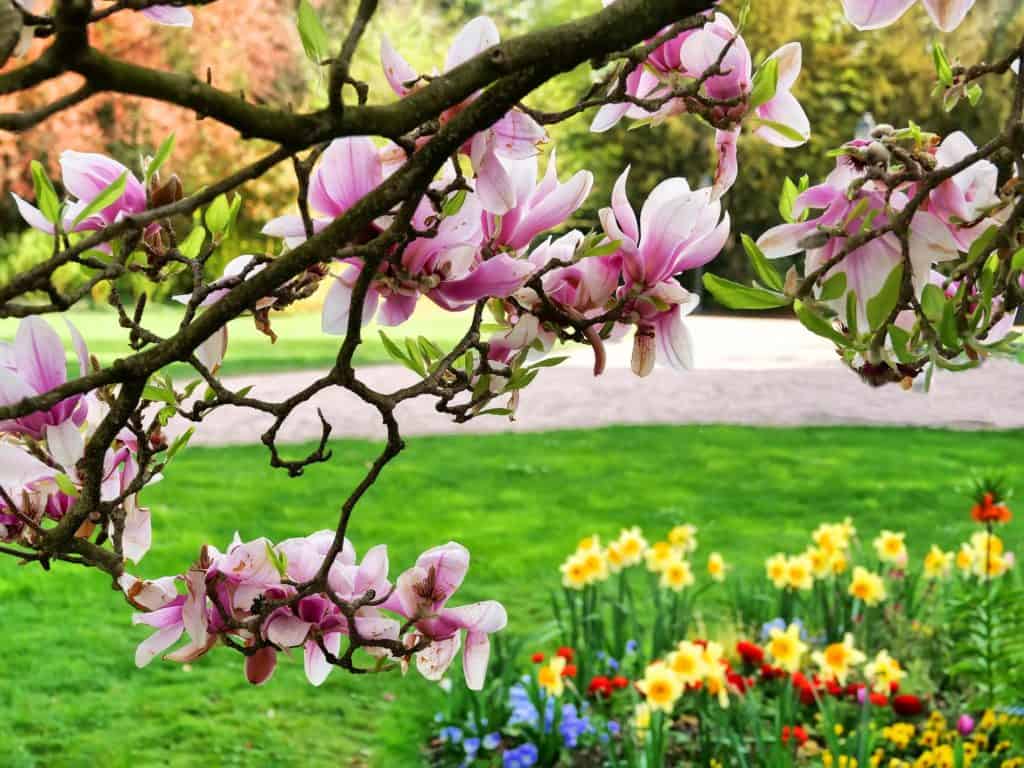Hay fever sufferers, beware: spring is coming early!

The coming weeks are predicted to be the mildest on record for this time of year. Which means gardens are going into bloom earlier. Seasonal flowers – including witch hazel, viburnums, shrubby honeysuckles, magnolia and Edgeworthia – will be flowering larger and more profusely as a result of last year’s hot, sunny summer and the lack of hard frosts this winter. And the end of February/beginning of March is shaping up to be the most fragrant in memory, with winter-flowering plants blooming more quickly than normal. Bottom line for hay fever sufferers: the pollen counts will be higher sooner.
Here’s how we can help your hay fever at The Natural Health Hub:
Homeopathy We have a great track record in treating hay fever with homeopathy. ‘The objective is to give you longterm relief, not just pills that manage your symptoms like the traditional hay fever “cures” such as Beconase, Piriton and Benadril,’ says The Hub’s homeopath Sue Leach. Homeopaths tailor hayfever treatment to you individually, bearing in mind not only your symptoms but also your medical history, your general state of health, your character and any other factors that may be making you more susceptible to allergies. High stress levels, for instance, can raise your histamine levels. A big emotional shock, or long period of emotional strain, can trigger hay fever. ‘It is only by looking at the whole picture that we can determine what is actually going on to cause your hay fever, and then give you an accurate line of treatment to reduce and possibly even eradicate your suffering.’ Most importantly, homeopathy works by treating you with hay fever, rather than hay fever itself.
Nutritional support Our naturopathic nutritionist Rhi Hepple offers dietary guidelines to help relieve or, again possibly, get rid of your hay fever symptoms. With her hair analysis test she may be able to identify why you are getting hay fever and other allergies, and give you advice on supplements to take and foods to eat or avoid according to what the hair test reveals.
Supplements We stock Vitamin B complex, Vitamin C and probiotics which all contribute to helping relieve hay fever. We particularly recommend Nutri’s Aller C for hay fever, a blend of quercetin (to helps to support healthy histamine levels, is a powerful natural antioxidant, and enhances the effect of Vitamin C), Vitamin C, bromelain (an enzyme derived from pineapple that helps to support healthy nasal and respiratory airways, and increases the absorption of quercetin to reduce inflmamation). £29.95 for 60 tablets, £52.45 for 120 tablets (taking 2-3 tablets two to four times a day)
Yoga Regular yoga exercises can lower compounds in the blood that lead to inflammation, research at the Ohio State University has found. Women who had practised yoga for at least two years had lower levels of inflammation-causing compounds in their blood, and the levels didn’t rise when they were put through stressful situations. Plus a survey by the National Pollen and Aerobiology Research Unit of more than 2,000 people with hay fever found that regular exercise can improve symptoms.
